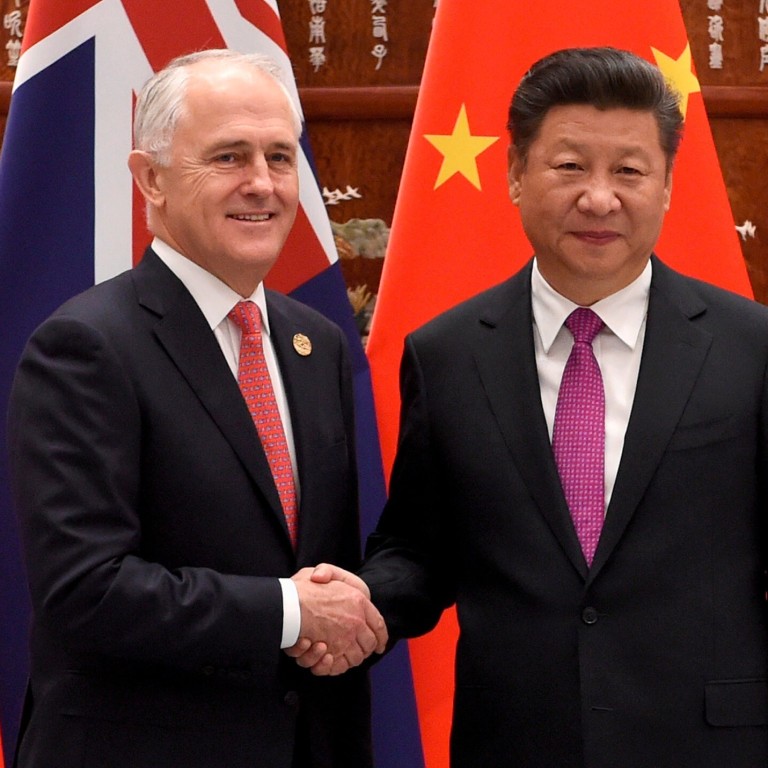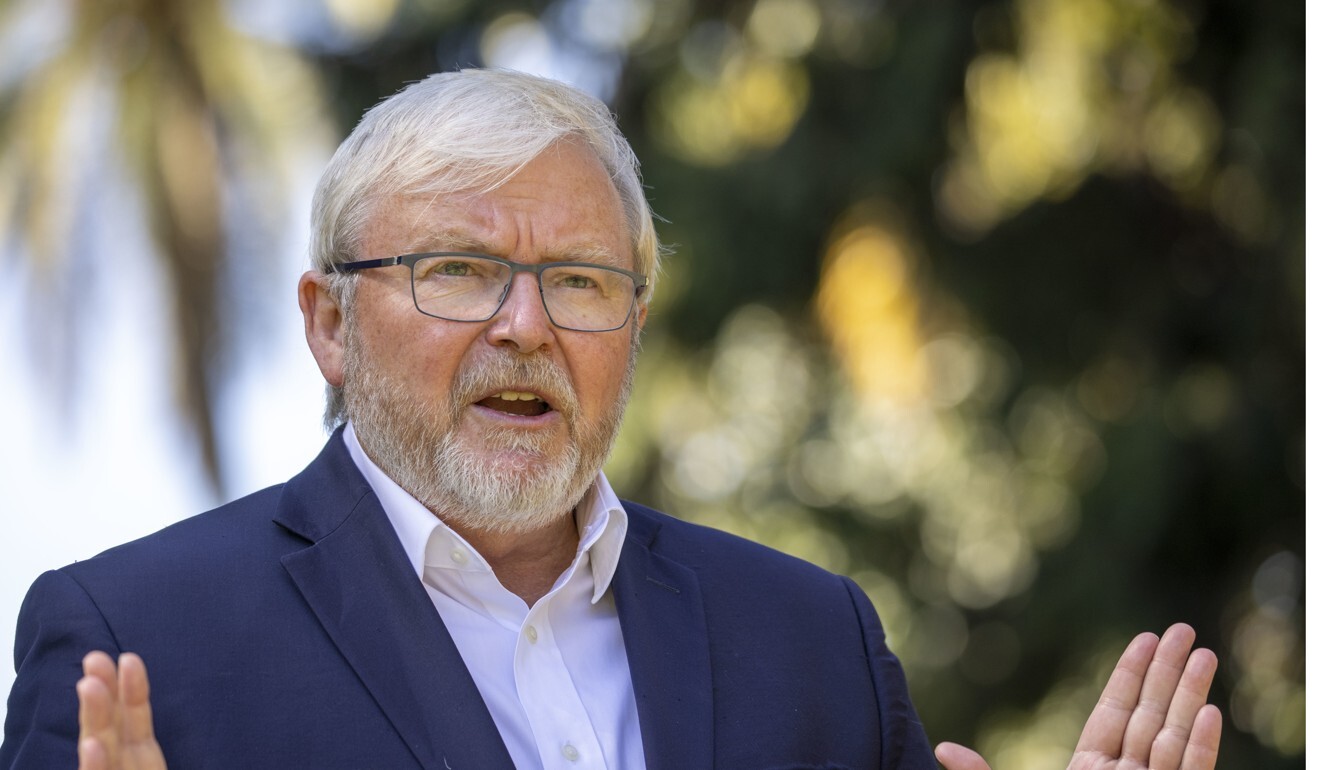
Xi Jinping’s foreign policy behind worsening China-Australia ties, say former PMs Malcolm Turnbull and Kevin Rudd
- China’s ‘wolf warrior diplomacy’ and activities in the South China Sea have strained its diplomatic relations with other countries, they said
- But they also blamed hawkish figures in Scott Morrison’s government, like Peter Dutton, as well as conservative media, for inflaming tensions
Speaking at a webinar on Tuesday, Turnbull and Rudd said Xi’s adoption of an increasingly nationalistic and strident foreign policy was the primary driver of worsening ties between Canberra and Beijing.
Australia’s answer to ‘belligerent’ China is India, former PM Tony Abbott says
Turnbull, whose government clashed with Beijing over its ban on Huawei Technologies Co and the passage of foreign interference legislation, said Chinese diplomacy had shown itself to be “out of touch”, describing an incident last year in which the Chinese embassy in Canberra circulated a list of 14 grievances as “truly one of the nuttiest things I have ever seen”.
Turnbull said he believed Xi, whom he described as “thoughtful”, “experienced” and “intelligent”, had taken an aggressive approach to international relations to cater to public opinion at home.
“I can’t see any other explanation for it,” he said.
“We have a Xi Jinping dynamic that is actually a changed dynamic. When I left office at the end of 2013, we were barely one year into the Xi Jinping period so we had begun to see this unfolding. But it has become more intense, to be fair to my successors.”
Xi had been open about his belief that China was engaged in a “struggle” for the future of the international order, Rudd said, adding that the possibility of an effort by Beijing to reunify with self-ruled Taiwan by force was a major threat to regional peace and stability.
“If China was, for example, to instigate a military action to retake Taiwan, that would, as it were, pull a plank from under the stability we have taken for granted for so long,” Rudd said.

Both ex-leaders, however, also laid some of the blame for the poor state of relations on hawkish figures within current Prime Minister Scott Morrison’s government and their allies in conservative media.
Rudd said government figures such as Defence Minister Peter Dutton, who earlier this year warned of the possibility of war over Taiwan, had engaged in “grossly irresponsible and reckless language”.
“That’s when you take a problem that’s already five out of 10 in intensity and turn it into an eight out of 10 problem,” said Rudd, who now leads the New York-based Asia Society.
Australia’s new Magnitsky-style sanctions law could target China: analysts
Turnbull singled out Home Affairs Secretary Mike Pezzullo – who in April told staff that democratic countries could hear “the beating drums” of war – as an example of a senior figure in Canberra who had engaged in unhelpful rhetoric that tended to “play well on the front pages of the Murdoch tabloids”.
“When people start using the China issue as a domestic political grandstanding, chest-beating issue to show how tough you are, that is so short-sighted and is absolutely contrary to Australia’s national interests,” Turnbull said.
Last week, Canberra announced a planned overhaul of its sanctions regime that is widely expected to put alleged rights abuses by Beijing in the crosshairs and further strain diplomatic relations.
Chinese Foreign Ministry spokesman Zhao Lijian last month said “mutual respect” was needed for cooperation and Beijing would “not allow any country to reap benefits from doing business with China while groundlessly accusing and smearing China and undermining China’s core interests based on ideology”.
Chinese people are part of our family, our Australian family
“It’s the difference between an operational strategy and a declaratory strategy,” he said.
Turnbull said Canberra could not back down on its core interests, but should avoid engaging in an “Antipodean Trump performance, flinging abuse left, right and centre”, and should ignore bellicose rhetoric from Beijing and Chinese state media.
“We just have got to be firm in our positions,” he said. “Don’t get involved in rhetorical overreach. Just play with a straight bat, to use a cricket metaphor.”
Australians’ trust in China has fallen to record lows, according to new survey
Both ex-leaders, who each have grandchildren with Chinese ancestry, stressed the importance of not conflating differences with Beijing with ill will toward ethnic Chinese people in China or Australia.
“We must not fall into that. Chinese people are part of our family, our Australian family,” Turnbull said.
“I do worry that some of this political rhetoric, if played for the local rightwing media peanut gallery, can actually undermine something which is very precious, which is the success of our multicultural society.”

